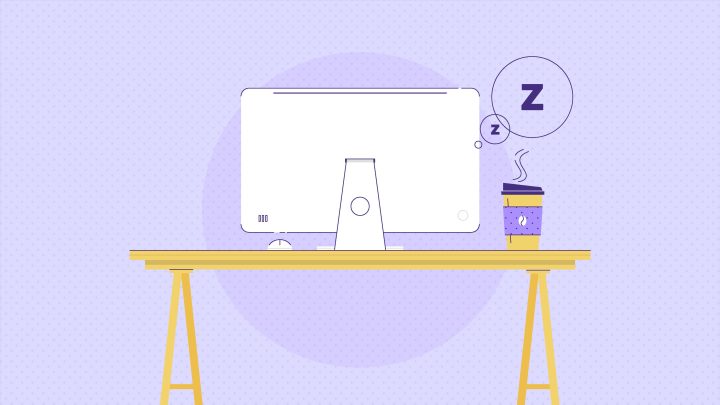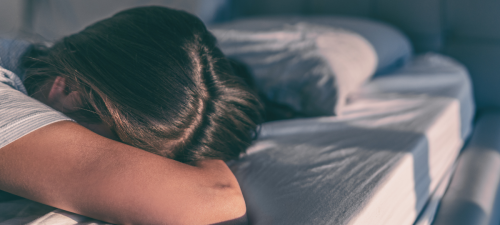“I can do it in my sleep” why sleep deprivation is harmful and what sleep can do for you

I have not slept in days, weeks, months, and years…or so it feels that way. In this fast-paced world we have entered while dealing with world pandemics, it seems the last thing we have time to do is sleep. Resting has become the new sleep and sadly, as human beings, our innate need for sleep is vital to maintain life: mentally, emotionally, physically, and spiritually. According to research done by Sleep Medicine Reviews, employees are at their worst when they do not sleep; lack of sleep’s affects are not specific to subordinates but leaders alike. It can be, in some cases, detrimental to business when people work while sleep deprived. Examples of issues that could arise from chronic sleep deprivation in the pursuit to work hard and prove oneself are, errors in important decision-oriented tasks, work-place accidents, and overall diminishing of quality in work. Other meta-analytic studies done by Sleep Periodicals observed symptoms were, detriments to job satisfaction and career progression, productivity, an increase in absenteeism, and counter-productive work behaviors. Organizations are encouraged to foster an environment that puts wellbeing above deadlines and over exertion as a sign of loyalty.
The effects of sleep deprivation on our physical and mental health:
Medically reviewed articles on verywellmind explained the harm to the physical wellbeing of people when sleep deprived. An increased chance of cancer, immunity against common illnesses, mental impairment, memory loss, ability to digest knowledge and learning, heart disease, damage to skin, weight issues, and the possibility of shortening life span. Even with the odds, mental health is correlated to lack of sleep such as depression, anxiety, increased paranoia, false memories, psychosis, restless leg syndrome, post-traumatic stress syndrome, triggering mania, and exasperation on attention deficit and attention-deficit hyperactivity disorder. That being said, chronic sleep deprivation or short-term sleep deprivation can be reversed and, in some cases of insomnia, solved permanently. Other than medicine and melatonin, behavioral changes are the most effective way to tackle lack of sleep. Below are proven suggestions to enhance your quality of sleep, hours of sleep, and the positive aspects of what sleep can truly do for your mind and body.
That being said, chronic sleep deprivation or short-term sleep deprivation can be reversed and, in some cases of insomnia, solved permanently. Other than medicine and melatonin, behavioral changes are the most effective way to tackle lack of sleep. Below are proven suggestions to enhance your quality of sleep, hours of sleep, and the positive aspects of what sleep can truly do for your mind and body.
Below are proven suggestions to enhance your quality of sleep, hours of sleep, and the positive aspects of what sleep can truly do for your mind and body.
1. Turn off your phone
Except for your aroma therapy lavender oil infused machine! The blue light emitted from electronics gives your brain the impression it needs to be awake and alert. Your electronics are sending signals to your brain that there is no wind down before falling asleep, this breaks the brain’s ability to fall asleep naturally.
2.It’s sleep time!
Setting and following a persistent sleep routine is another key to getting regular sleep and avoiding taxed sleep times. Fortunately, training your brain and self to say it’s time to end the day is a form of self-discipline that translates not only to regular hours of sleep but knowing when to call it quits is a form of healthy boundaries, we set for ourselves.
3. It’s my sleep spot!
Having a good sleeping environment lets your body know it is time to rest. We naturally have the sun to tell us when it is nighttime, it is one form of setting a sleep time and also light exposure could make it hard to sleep. Set your air conditioning to a comfortable temperature where it is not too cold you cannot get out of bed or too hot that your body has to continuously recalibrate your temperature to it’s natural sleeping temperature. If possible, keep a dark and quite environment. Our brains need to go through a REM cycle (Rapid Eye Movement) to fall into deep sleep. In order to do so, our physiology has requirements.
4. Relaaaax!!
Easier said than done, if we are tense our body and brain are kept alert making it difficult for our mind to be at ease. Don’t worry, there are ways to trick our body into relaxing:
1. The 4-step breathing technique (box breathing):
breath in counting to four, keep your breath in counting to four, exhaling all air counting to four, and keeping your lungs empty while counting to four. Repeat the 4-step or box breathing until you feel your brain clear or slow down.
2. The clench and release:
laying on your back with your feet separated and hands down your side, begin by clenching and tensing your whole body. Make sure to engage your hands and feet. Clench for a total of 10 seconds and then release. Repeat until your body feels less tight.
3. Going to a happy peaceful place in your mind:
this is the practice of a mini meditation. Close your eyes and lay in an open body position, begin to create your peaceful happy place. You could make it up or it could be a place you’ve been to. Make sure to remove all disturbances to your peace in your happy place. Add visual and auditorial specifics to immerse yourself completely into your imagination. The best part about your happy peaceful place is being able to access it at any time when you are not relaxed. Whether it was related to sleep or not, this is a good practice for relieving anxiety and physical stress.
4. Take a hot bath or shower!!
Researchers have called it the “warm bath effect” prior to sleeping our core body temperature cools while the skin temperature in hands and feet are still warm. Warm water aids in the process of regulating the body temperature for sleep time. Also, a hot bath before sleep signals your brain as part of the routine that it is time for bed making it easier to develop a routine for your brain.
5. No drinking and eating before going to Sleep
unless it’s a helpful snack! The functions of the body are different and in order to shut down all unrelated body functions before sleep, it is important to give your body the correct amount of time to digest before bed. The rule of thumb is to avoid food 2 hours before bed and liquids an hour ahead of bedtime. Having a snack or herbal remedies are a practice that can be incorporated if you are a late night snacker. Bananas are high in potassium which aids in falling asleep. Herbal teas that do not contain caffeine are good practice to ease the digestive system before bed and induce the natural sleep aid chemicals our brains secrete.
At the end of the day, health comes first and sometimes the solutions are as simple as having a goodnight’s sleep. Sleep well!


















